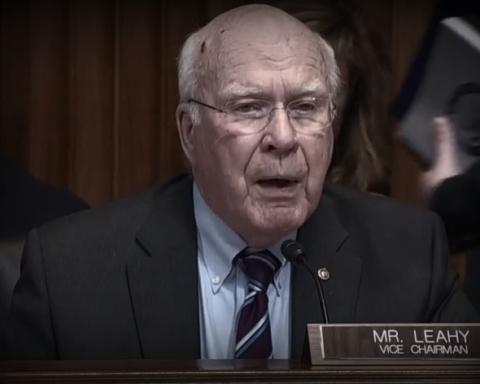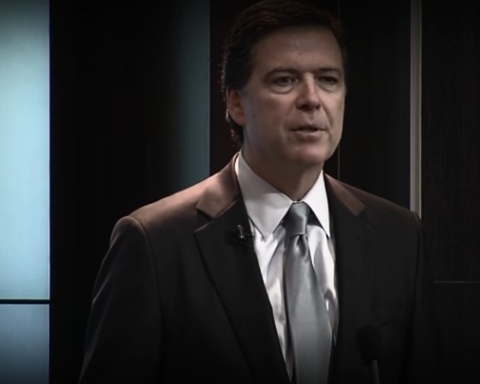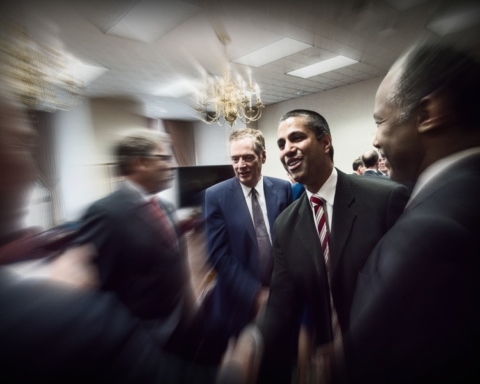In a vote that lasted just a few seconds, the Federal Communications Commission (FCC) initiated the deconstruction of sweeping internet regulations that preserve open access to independent information.
The Notice of Proposed Rulemaking, which aims to repeal Net Neutrality protections, was approved by the three-member commission in a 2-1 party line vote on Thursday morning.
Passage of the measure kicks off a public comment period that ends on August 16. During that time, the FCC will solicit feedback on its repeal proposal.
FCC Chairman Ajit Pai stressed that Thursday’s vote is just “the beginning of the process.” In prepared remarks, he claimed that the commission would “follow the facts and law where they take us.”
In those same remarks, however, Pai made it clear what he thought of the FCC’s adoption of Net Neutrality regulations in 2015.
“The FCC that year succumbed to partisan pressure from the White House and changed course,” Pai claimed. He added that the rules placed “new regulatory burdens” on internet service providers, and that the FCC ought to return to the “Clinton light touch framework that proved so successful.”
Under then-FCC Chairman Tom Wheeler two years ago, the commission classified broadband as a common carrier under Title II of the Communications Act. The designation allowed the FCC to police paid prioritization and other arrangements that could lead to ISP’s throttling down the content of their competitors, and essentially walling off the web.
Now, with the FCC under Republican control, there’s little standing in the way of Pai being able to dismantle those protections, which would allow major media companies to pay providers for preferential access to their content.
Internet freedom advocates that tirelessly fought for years to get the FCC to adopt Net Neutrality rules were back on site ready to defend them. They protested outside the commission’s headquarters, joined by Democratic Members of Congress, and groups like ACLU, Fight for the Future, and The Electronic Frontier Foundation.
Inside on the panel, however, there was only one dissenting voice: Democratic Commissioner Mignon Clyburn. She classified Pai’s proposal as the “Destroying Internet Freedom” order.
Clyburn noted that Net Neutrality rules have already been studied by the commission, approved, and upheld twice in the courts. And she questioned the reliability of Pai’s data, which claimed that ISP investments in broadband have declined since the regulations were approved.
“It is glaring obvious with each open meeting that the willingness and ability of the majority to protect consumers and competition in a broadband era has come to a screeching halt,” Clyburn continued.
On Capitol Hill, Democrats reacted to the news with concern. Sen. Al Franken (D- Minn.) released a statement calling Pai’s proposal a “terrible idea.”
“Make no mistake: the FCC just took a major step toward destroying the internet as we know it, putting the interests of a handful of giant corporations like Comcast and Verizon ahead of the American people,” Franken added.
Rep. Barbara Lee (D-Calif.), who rallied with protestors outside the FCC, voiced her opposition on Twitter.
“Trump’s @FCC wants to take away the open internet, at a time when free speech has never been more critical. We must protect #NetNeutrality!” she tweeted.








